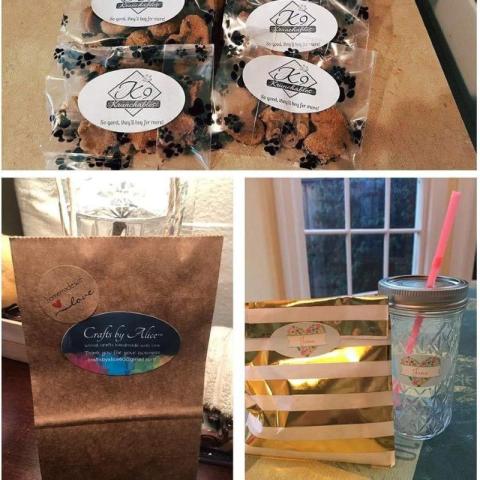
Synthetic paper labels are a new type of environmentally friendly material made of plastic resin and inorganic filler through a special process. It not only has the good printing performance of traditional paper, but also has the characteristics of plastic film such as waterproof and oil-proof. Due to its unique physical and chemical properties, synthetic paper labels are widely used in many fields and have become an indispensable part of the modern packaging industry.
Features
- water and oil resistance: synthetic paper labels have excellent water and oil resistance, even in wet or greasy environments can maintain clear text and graphics.
- strong tear resistance: compared with ordinary paper labels, synthetic paper has stronger toughness, not easy to break, suitable for long-term preservation and use.
- environmentally friendly recyclable: most of the synthetic paper products made of recyclable raw materials, can be processed again after disposal, in line with the concept of sustainable development.
- Excellent printing effect: the surface is smooth and delicate, both laser printing and inkjet printing can obtain high-quality image output.
- Wide range of adaptive temperature: able to work in a wide range of temperature conditions without affecting its performance.
- lightweight and durable: light weight and high strength, easy to transport and storage at the same time to extend the service life.
Applications
- food and beverage industry: used in bottled water, fruit juice, alcohol and other products on the outer packaging, to ensure that the information is complete and does not fall off.
- Medicine and health field: drug manuals, health care labels and other places that need to be stored for a long time and ensure the accuracy of the content.
- daily chemical products market: shampoo, shower gel, cosmetics and other personal care products container labeling.
- Logistics and warehouse management: barcode labels, RFID tags, etc. are used in cargo tracking and identification systems to improve work efficiency.
- electronics packaging: cell phones, computer parts and other precision electronic equipment, external labeling, to protect the internal components from external environmental damage.
- Outdoor advertising and promotion: posters, banners and other temporary display materials that remain in good condition under adverse weather conditions.
Product Category
